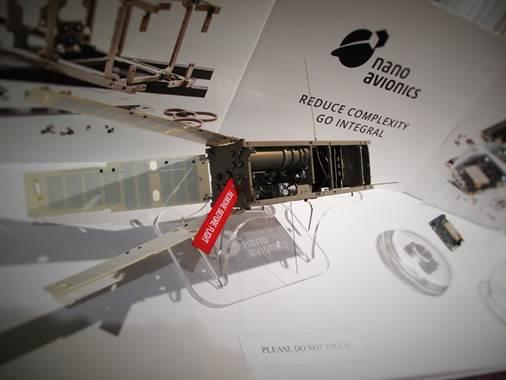Funding Of EUR 193,000 Allocated For Research Conducted By A Space Technology Start-up Company
2015
Oct 15
Oct 15

The Lithuanian State Research Institute Center for Physical Sciences and Technology and the space technology start-up company NanoAvionics have been engaged in the development of a modern satellite propulsion system, which will be tested during the mission of the nano-satellite LituanicaSAT-2 to be launched into space in 2016. Later, the system will be improved and adapted for the space market. The Research Council of Lithuania allocated EUR 193,000 for the research.
“Out of more than 100 applications for funding, our joint research, conducted in cooperation with the Center for Physical Sciences and Technology, was among seven projects that received funding. This is a huge achievement for us. In the development of the second nano-satellite, we did not limit ourselves only to cooperation with Vilnius University. An increasing number of scientists have joined the process, and all together we can achieve even better results in 2016, when the second nano-satellite will be launched to space,” said Vytenis Buzas, CEO of NanoAvionics.
The project will allow for the creation and development of an innovative solid-phase catalyst bed for miniaturized micro- and nano-satellite propulsion systems, which operate with modern ammonium dinitramide-based rocket fuel. Such systems are subject to the main requirement, namely, maximum electricity consumption efficiency and minimum fuel consumption.
Buzas noted that this is the very first time such an experiment with a small satellite will be conducted. Later, the plan is to improve the created system for a commercial product prototype and place it on the market, where there is currently a great demand for such products.
“The situation has changed. Previously, nano-satellites were necessary for university and research centers only. However, now a strong breakthrough has occurred in the commercial sector, and a great market demand for different nano-satellite systems has emerged, which has raised the technological state-of-art and allowed for the extension of the nano-satellite orbital lifetime,” said Eugenijus Norkus, professor at the Center for Physical Sciences and Technology.
In 2014, the first Lithuanian satellite LituanicaSAT-1 was launched as a result of the joint effort of a team of scientists from Vilnius University and NanoAvionics. Currently, LituanicaSAT-2, the second satellite planned to be launched into space at the end of 2016, is being developed with close cooperation by the institutions.
